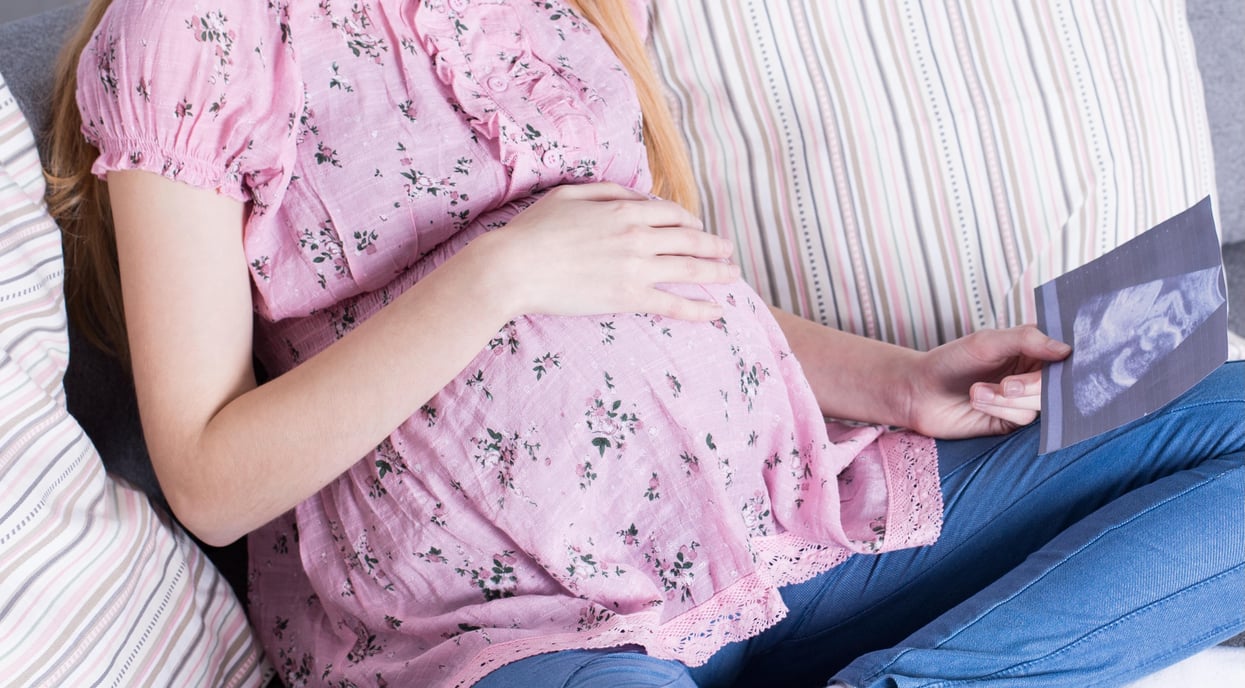Scheduled Childbirth Could Prevent At-Term Preeclampsia

MONDAY, April 10, 2023 (HealthDay News) -- A risk-stratified screening approach at 35 to 36 weeks of gestation can prevent at-term preeclampsia (cases that occur during weeks 37 to 42) , according to a study published online April 10 in Hypertension.
Laura A. Magee, M.D., from King's College Hospital in London, and colleagues aimed to identify optimal preeclampsia screening and timing of birth strategy for preeclampsia prevention. Preeclampsia screening was conducted at routine visits at 11 to 13 weeks of gestation (57,131 pregnancies screened; 1,138 term preeclampsia developed) or at 35 to 36 weeks of gestation (29,035 pregnancies screened; 619 term preeclampsia) with preeclampsia risks determined by U.K. National Institute for Health and Care Excellence guidance and the Fetal Medicine Foundation competing-risks model. The timing of birth for term preeclampsia prevention was assessed at fixed gestational time points (37, 38, 39, and 40 weeks) or dependent on preeclampsia risk based on the competing-risks model at 35 to 36 weeks.
The researchers found that compared with screening at 11 to 13 weeks, the proportion of term preeclampsia prevented was the highest and the number-needed-to-deliver was the lowest for preeclampsia screening at 35 to 36 weeks. Fewer cases of preeclampsia were prevented for National Institute for Health and Care Excellence than the competing-risks model for delivery at 37 weeks (28.8 versus 59.8 percent), and the number-needed-to-deliver was higher (16.4 versus 6.9, respectively). Similar preeclampsia prevention and number-needed-to-deliver were seen with the risk-stratified approach (by 57.2 percent and 8.4, respectively) but would result in fewer women being induced at 37 weeks (1.2 versus 8.8 percent).
"Our findings suggest that over half of the cases of at-term preeclampsia may be prevented by timed (planned) birth," Magee said in a statement.
Reagents and relevant equipment were provided free of charge by several companies.
Related Posts
‘Breakthrough’ COVID More Likely in People With Problem Drug, Alcohol Use
WEDNESDAY, Oct. 6, 2021 (HealthDay News) -- Drug and alcohol abuse increase the...
AHA News: Las diferencias y similitudes entre la influenza y COVID-19
MIÉRCOLES, 13 de octubre de 2021 (American Heart Association News) -- Los virus...
Increase in Emotional Distress Observed Worldwide in 2020
MONDAY, March 27, 2023 (HealthDay News) -- The pandemic period was characterized...
En raros casos, la COVID-19 en el embarazo podría dañar al cerebro del feto
VIERNES, 7 de abril de 2023 (HealthDay News) -- Es muy poco probable, pero la...
